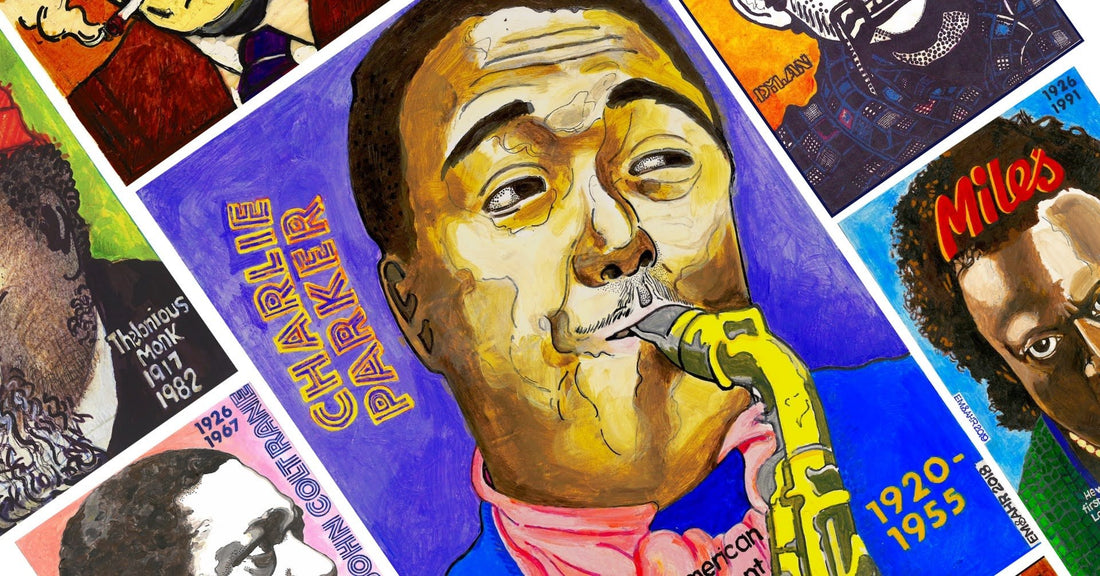
Charlie Parker: The Bird Who Changed Jazz Forever
Share
Charlie Parker: The Bird Who Changed Jazz Forever
Charlie Parker, nicknamed “Bird,” was born on August 29, 1920, in Kansas City, Kansas, and grew up in Kansas City, Missouri—a city alive with jazz. From a young age, Parker was captivated by music. He picked up the saxophone as a teenager and, despite an unpolished start, practiced relentlessly. Legend has it he would practice up to 15 hours a day, often until his lips bled. This obsessive dedication set the foundation for a musician who would later reshape jazz forever.
Parker’s early life was far from easy. He grew up in a working-class family during the Great Depression, and his youth was marked by poverty, personal loss, and limited opportunity. At 16, a humiliating onstage incident—when he tried to play with older musicians and was mocked off stage—only fueled his determination to improve. He immersed himself in music theory, memorized solos, and absorbed everything from classical compositions to blues riffs echoing in the streets.
As his skill grew, so did his struggles. In his late teens, Parker developed a heroin addiction, a demon that would shadow much of his career. Despite this, he pushed forward, moving to New York City in 1939, where jazz was evolving into something new and restless. It was here that Parker, alongside other innovators like Dizzy Gillespie, Thelonious Monk, and Max Roach, birthed bebop—a complex, fast-paced, and harmonically adventurous form of jazz that would redefine the genre.
Parker’s sound was revolutionary: lightning-fast runs, unexpected intervals, and an improvisational genius that made his saxophone sing with both fire and sorrow. His recordings, such as Ko-Ko, Ornithology, and Confirmation, showcased a mind and soul operating on a higher musical plane. Yet behind this brilliance lay a life of turbulence—struggles with addiction, financial instability, and time spent in and out of hospitals.
Despite these tribulations, Parker’s perseverance and raw genius kept him soaring. He never stopped exploring, never stopped pushing boundaries. He played with an intensity that came from living on the edge, transforming his personal pain into timeless art. His influence spread far beyond jazz; classical composers, rock musicians, and even poets drew inspiration from his fearless creativity.
Charlie Parker’s life was tragically short. On March 12, 1955, he died at just 34 years old in New York City. Years of hard living and addiction had taken their toll. Yet, in that brief time, he accomplished what few could: he revolutionized a genre, inspired generations, and became a symbol of both the brilliance and the cost of genius.
What makes Parker’s story remarkable is how he overcame humiliation, poverty, and his own inner battles to create something entirely new. He turned adversity into artistry, proving that even from chaos, beauty can rise. His nickname “Bird” was fitting—he flew high, sometimes too close to the flame, but his flight forever changed the music world.
Today, Charlie Parker remains one of the greatest jazz musicians of all time—a man who lived hard, played harder, and left behind a legacy that continues to inspire anyone striving to turn struggle into greatness.
